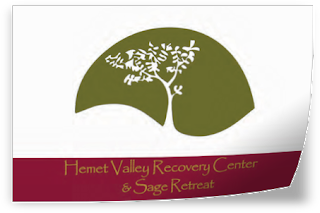Work is a necessary part of life, but career burnout is an unfortunate reality many workers struggle with, and it could derail your recovery. It’s common for people who are in recovery to turn to other outlets that foster addictive behavior, like excessive exercise or workaholism.
Career burnout isn’t always easy to recognize early on, which is why preventing it can be so tricky. It might start with clocking a few too many long days, so you start skipping your morning runs or post-work gym sessions. You clock more long days and reach for an extra cup of coffee to power through the afternoon, which throws off your sleep cycle. Then, you’re skipping meals because you’ve lost your appetite. Now, you’re completely exhausted and can barely muster up the energy to meet with your support group or attend 12-step meetings.
This pattern, when combined with work-related stress, can snowball into anxiety, depression and other mental health issues that impact your career and virtually every other aspect of your life. It’s easy to see why burnout provides a path to relapse.
According to Psychology Today, burnout is a state of chronic stress that leads to:
- Physical and emotional exhaustion.
- Cynicism and detachment.
- Feelings of dissatisfaction and lack of accomplishment.
If you’re in recovery from substance use disorder, burnout can undo all of the hard work you’ve put in during treatment. It’s important for everyone to maintain healthy work-life balance, especially if you’re in recovery.
Be Able to Recognize Burnout Symptoms Before They’re Out of Control
Of course, your career is something you should take seriously. But if your job is demanding too much of you, it can eventually interfere with other areas of life, like your family, social life and health. Burnout can have serious side effects on your physical well-being and can cause health problems like high blood pressure high cholesterol, heart disease, stroke, obesity and type 2 diabetes.
Identifying burnout symptoms from the outset enables you to intervene and take measures to reclaim work-life balance and prevent burnout from becoming a bigger issue. Signs of burnout include:
- Chronic fatigue. In the initial stages of burnout, you feel tired most days. Later on, you begin to feel utterly drained and exhausted, both physically and mentally, and are dreading what’s to come at work the next day.
- Physical symptoms. Heart palpitations, shortness of breath, dizziness, headaches, gastrointestinal issues and chest pain are all common physical symptoms of burnout.
- Illness. Your immune system has taken a hit, so you’re getting sick more often.
- Insomnia. Maybe you’re tossing and turning a few nights a week, but then it turns into a nightly event. Still, despite being exhausted, you can’t fall asleep.
- Loss of interest. At first, you may not want to go to work, or you can’t wait to leave. You may have checked out mentally. Loss of interest can also roll into other parts of your life.
- Isolation. You’ve stopped going out to lunch with your co-workers, you close your office door or you’ve stopped volunteering to work on certain projects. Isolation can turn into avoidance behaviors like coming in early or going home late to avoid interacting with your co-workers.
- Depression. At first, you may feel a little sad or hopeless, or guilty for feeling those feelings. Depression can evolve into something more serious and life-altering, at which point you should seek professional help.
- Forgetfulness. Being forgetful or having trouble focusing is common early on. It can reach a point where you can’t get any work done, so your work begins to pile up, leaving you more stressed.
- Decreased productivity and performance. Even though you’re working a lot, you have nothing to show for it. All that stress has hindered your ability to be as productive as you used to be. You feel completely swamped with work; like you can’t keep your head above water no matter how hard you try.
- Loss of appetite. You start skipping meals every so often because you’re not hungry. Then, you’ve lost your appetite and are losing weight.
- Detachment. You just don’t feel connected to your job or co-workers like you once did. Maybe you’ve started to isolate yourself or are calling out sick, aren’t returning phone calls and emails, or are showing up late.
- Anxiety. Feeling tense and on-edge are common in the early stages of burnout, and anxiety can become so severe that it hinders your productivity.
- Irritability. Burnout can make you feel unproductive and unimportant, which can make you feel irritable. Over time, you may find that despite your best efforts, you struggle to control your irritability.
- Pessimism. You’ve started looking at like with a “glass half-empty” attitude. Over time, pessimism can impact self-talk about the way you feel about yourself, which can impact the way you feel about your co-workers, friends and family members.
How to Prevent Burnout
Take action toward preventing burnout as soon as you recognize symptoms. Talk with your supervisor about cutting back on your workload, reducing your hours or delegating certain tasks to your colleagues. Don’t be afraid to say “no” if someone asks you to take on additional responsibilities.
If you can, work from home a few days a week. Use the time you would have spent commuting to work to take a walk around your neighborhood or meditate. Make exercising, attending support groups and meeting with your therapist or sponsor priorities.
Knowing how to intervene before burnout gets out of control is vital to preventing relapse. If you’re struggling with substance abuse or career burnout, Hemet Valley Recovery Center can help. Contact us at 866-273-0868 for more information about our detox and residential treatment programs.


